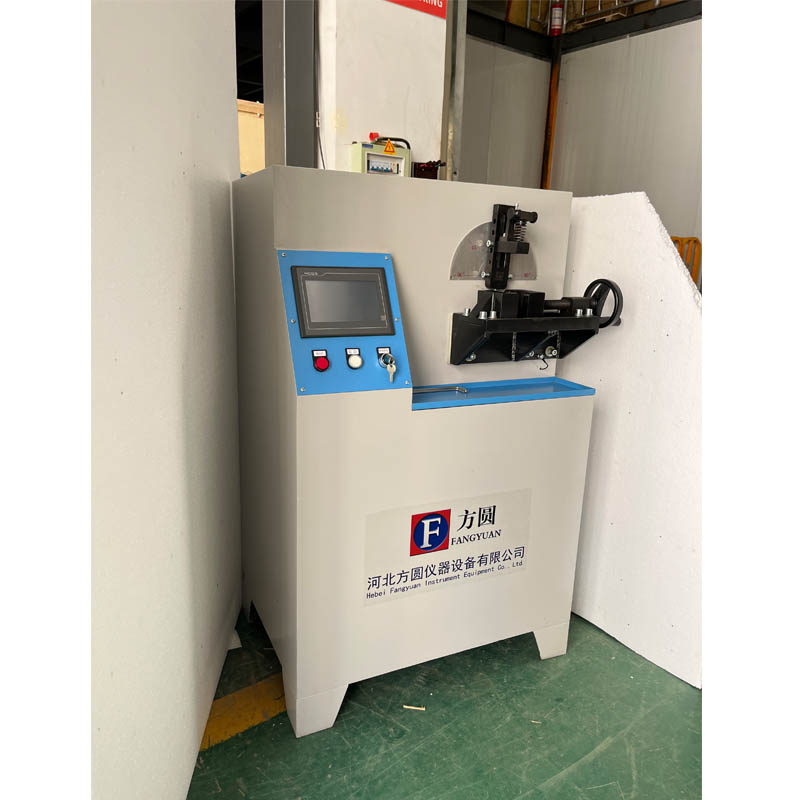custom tensile testers
Custom Tensile Testers Tailoring Solutions for Material Testing
In the realm of material science and engineering, the importance of testing the mechanical properties of materials cannot be overstated. Tensile testing, a method that determines how materials behave under tension, is fundamental for various industries, including aerospace, automotive, construction, and manufacturing. While standard tensile testers are widely available, the need for custom tensile testers is increasingly recognized, allowing organizations to tailor the testing process to their specific needs.
Understanding Tensile Testing
Tensile testing involves stretching a material sample until it breaks, measuring various parameters such as elongation, yield strength, ultimate tensile strength, and reduction in area. These parameters help engineers and designers determine whether a material is suitable for a particular application. A tensile tester applies a controlled force to the specimen while monitoring its response, providing critical insights into material performance.
The Demand for Customization
Not all materials are created equal, nor are the testing environments. From delicate polymers to robust metals, materials can vary significantly in their mechanical properties and behaviors. Standard tensile testers can be insufficient for specialized applications, where unique parameters or testing conditions may be required. Custom tensile testers are designed to meet these specific needs, ensuring accurate and meaningful test results.
Customization of tensile testers can take many forms
1. Loading Capacity Different materials require different force ranges. A custom tensile tester can be built to accommodate higher loads for robust materials or lower loads for more fragile samples.
2. Specimen Geometry The geometry of the sample plays a crucial role in how the material behaves under stress. Custom testers can be designed to hold specimens of various shapes and sizes, ensuring that the testing aligns with the intended real-world application.
3. Environmental Conditions Certain materials must be tested under specific environmental conditions, such as extreme temperatures or humidity levels. Custom tensile testers can be equipped with chambers to control these conditions, allowing for testing that reflects the environment in which the materials will be used.
4. Data Acquisition Systems Advanced data acquisition systems can be integrated into custom tensile testers. This allows for real-time monitoring and analysis of test results, leading to more precise assessments of material properties.
custom tensile testers

5. Automation and Integration In today's fast-paced industry, time is of the essence. Custom tensile testers can be designed for automation and seamless integration into existing manufacturing or quality control systems, reducing labor costs and improving efficiency.
Benefits of Custom Tensile Testers
Investing in custom tensile testers brings numerous advantages
- Enhanced Accuracy Tailored instruments ensure that testing methods are suitable for specific materials, leading to more reliable and accurate results.
- Improved Efficiency Customization can streamline the testing process, making it quicker and more efficient, which is crucial in fast-paced industrial settings.
- Versatility Custom tensile testers can handle a range of materials and testing conditions, making them a versatile addition to a material testing laboratory.
- Regulatory Compliance Industries often have specific regulations and standards that must be met. Custom tensile testers can be designed to comply with these standards, ensuring that testing practices are up to date and compliant.
Challenges in Customization
While there are many benefits to custom tensile testers, challenges exist as well. Designing a custom solution can be more complex and costly than purchasing off-the-shelf equipment. It often requires a thorough understanding of both the materials being tested and the testing methods employed. Additionally, ongoing maintenance and calibration of custom equipment can necessitate a commitment to quality assurance.
Conclusion
In conclusion, custom tensile testers represent a critical advancement in the field of material testing. By accommodating unique materials and testing requirements, these tailored solutions improve accuracy, efficiency, and compliance, ultimately facilitating better material performance analysis. As industries continue to demand higher standards of material reliability and performance, the development and utilization of custom tensile testers are likely to grow. Investing in such bespoke equipment may be the key to unlocking the full potential of innovative materials in the evolving landscape of engineering and manufacturing.
-
Why the Conductor Resistance Constant Temperature Measurement Machine Redefines Precision
NewsJun.20,2025
-
Reliable Testing Starts Here: Why the High Insulation Resistance Measuring Instrument Is a Must-Have
NewsJun.20,2025
-
Flexible Cable Flexing Test Equipment: The Precision Standard for Cable Durability and Performance Testing
NewsJun.20,2025
-
Digital Measurement Projector: Precision Visualization for Modern Manufacturing
NewsJun.20,2025
-
Computer Control Electronic Tensile Tester: Precision and Power for the Modern Metal Industry
NewsJun.20,2025
-
Cable Spark Tester: Your Ultimate Insulation Assurance for Wire and Cable Testing
NewsJun.20,2025
 Copyright © 2025 Hebei Fangyuan Instrument & Equipment Co.,Ltd. All Rights Reserved. Sitemap | Privacy Policy
Copyright © 2025 Hebei Fangyuan Instrument & Equipment Co.,Ltd. All Rights Reserved. Sitemap | Privacy Policy
